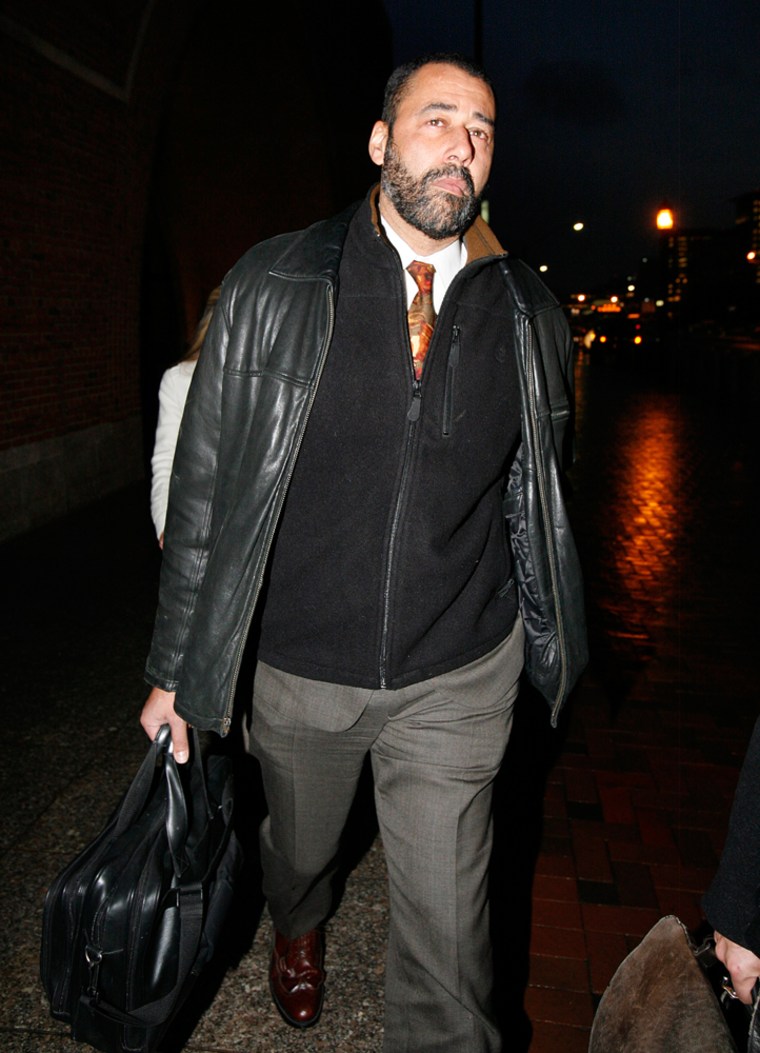The top official in charge of fighting racial profiling for the American Civil Liberties Union says he was the victim of profiling at the Boston airport, and he has gone to federal court to challenge a screening technique that relies on suspicious behavior to identify potential terrorists.
King Downing said he was stopped and questioned by state police in October 2003 after arriving on a flight to attend a meeting on racial profiling.
Downing sued the Massachusetts Port Authority, which operates the airport, and Massachusetts State Police, alleging they violated his constitutional right against unreasonable search. A trial in the case began Monday in U.S. District Court.
Downing, who is black and wears a short beard, said in his lawsuit that he was stopped by a state trooper and asked to show identification after he left the gate area and made a phone call in the terminal.
When he declined, Downing said, he was told to leave the airport, but was then stopped again. He was surrounded by four state troopers and told that he was under arrest for failing to produce identification.
Downing, an attorney who serves as national coordinator of the ACLU's Campaign Against Racial Profiling, said after he agreed to show his driver's license, the troopers asked to see his airline ticket. He was then allowed to leave, and no charges were filed against him.
In his lawsuit, Downing alleges the behavioral screening system used at Logan International Airport encourages racial profiling. His lawsuit seeks unspecified damage and a ruling to declare the screening system unconstitutional.
Downing was stopped "for no apparent reasons other than his appearance," said Peter Krupp, one of his attorneys. "He knew his rights, and he knew he had done nothing wrong."
In 2002, about a year after terrorists launched the Sept. 11 attacks by hijacking two planes from Logan, the airport began a program called "Behavior Assessment Screening System," which allows police to question passengers whose behavior appears suspicious. Logan was the first airport in the country to use the system.
The Transportation Security Administration has rolled out a similar system at more than 40 of the nation's largest airports. The TSA would not reveal what kinds of behavior authorities look for, but officials at Logan have previously said suspicious activity includes loitering without luggage, wearing heavy clothes on a hot day and watching security methods at the airport.
Logan officials say race played no role in the decision to question Downing. The first trooper to ask Downing for identification was black, and three of the four officers who arrived later were also black, according to court documents. The first trooper said he became suspicious when he saw Downing watching him.
Airport officials insisted behavior-pattern recognition helps strengthen security and does not involve racial profiling.
"We welcome the opportunity to defend the program in court," said Matthew Brelis, a spokesman for the Massachusetts Port Authority, which operates the airport.
Critics say the behavioral-recognition technique carries an inherent risk of racial profiling.
"Done right, it is based on behavior. Done wrong, it is based on physical characteristics, superficial characteristics," said Bruce Schneier, chief technology officer at the security firm BT Counterpane. "Unfortunately, it's easy to do it wrong."
